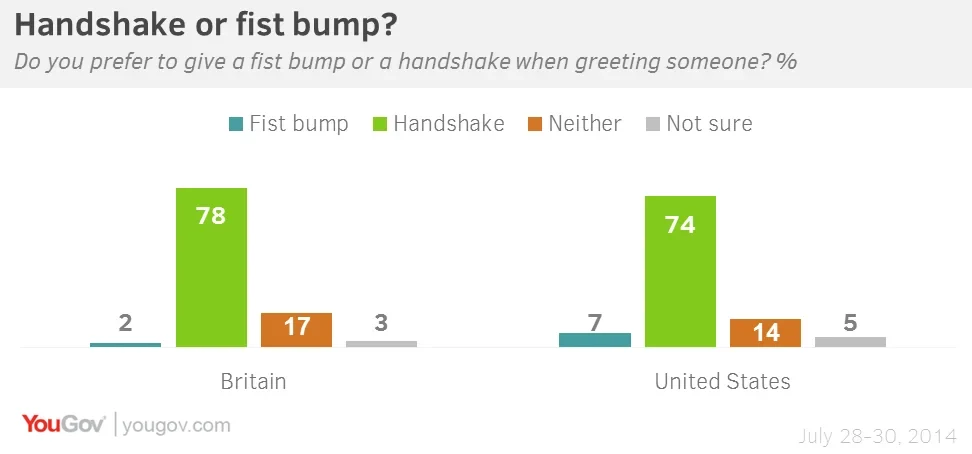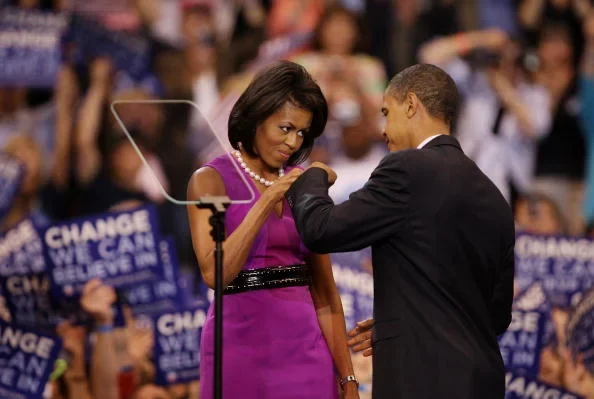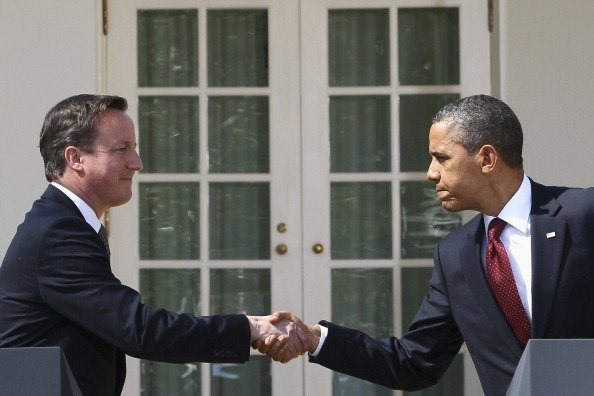Despite calls to adopt the fist bump instead of the handshake for health reasons, there is no evidence that people in America or Britain are taking to it
Researchers recently revealed that a common way of greeting people might be posing a public health risk. According to a new study from scientists at Aberystwyth University in Wales, handshakes transfer more bacteria than other forms of hand-to-hand greetings. The safest hand maneuver tested was a fist bump, with the high-five somewhere in between a shake and a bump. The researchers have called for widespread adoption of the fist bump – at least during flu season.
New YouGov research into greetings finds no evidence that the fist bump is becoming a popular greeting – not particularly in the United States and not at all in Britain.
Only 2% of British people say they prefer to give someone a fist bump over a handshake, while 78% prefer the traditional method. 17% don’t like either.
Americans are only slightly friendlier to the fist bump: handshake is on 74% and fist bump 7%.

One of the groups most firmly against the fist bump are Republicans, who are more likely than Democrats to prefer a handshake by 10 points (85% versus 75%) and less likely to prefer a fist bump by 6 (3% versus 9%). The 3% number for fist bumping Republicans is nominally the lowest of any individual demographic group in the poll, with Americans 65 and older, those in families earning at least $100,000 and those in the Midwest all at 4%.
The difference is within the margin of error, but it might not be surprising if the fist bump has become politicized in the United States, where President Barack Obama, a Democrat, has made the fist bump part of his personal brand (a TV anchor's characterization of the president's gesture as a "terrorist fist jab" was famously satirized on the cover of New Yorker magazine).

Interestingly, independent voters – those who don’t identify as a Republican or a Democrat – are nearly twice as likely as other voters to prefer “neither” hand maneuver (19% versus 10% for both Democrats and Republicans).
Both surveys were conducted after the release of the recent study into bacteria and touching.
Images: Getty
A version of this article appeared on YouGov.co.uk










